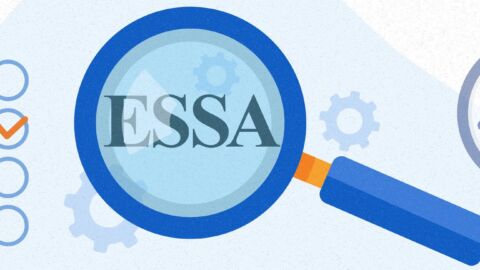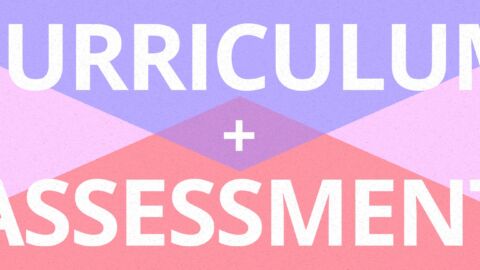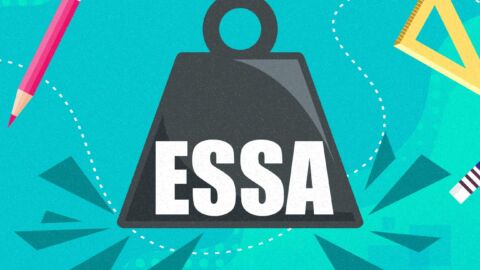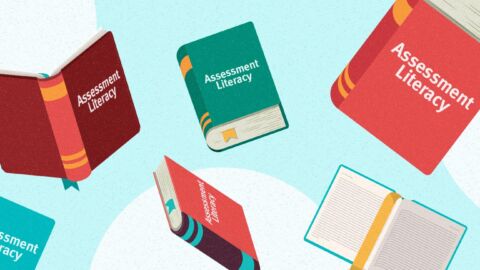
Just Give Us a Little
One small change in Federal testing law could lead to significant improvements in state tests and the perception of state testing.
Read More
One small change in Federal testing law could lead to significant improvements in state tests and the perception of state testing.
Read More
Considering Options Between Curriculum-Specific and Curriculum-Agnostic State Assessment State summative assessments are intentionally designed to be curriculum-agnostic. The design of these state assessments ignores the various instructional materials and other […]
Read More
Four Principles to Guide State Decisions about ESSA Accountability Systems A large part of the work my colleagues and I do at the Center is focused on helping our clients […]
Read More
Issues and Considerations Regarding Time Spent on Testing It’s rare to find an issue that nearly everyone agrees with, but I think that the desire to reduce testing time is […]
Read More
Making the Case for a New Approach to Federal School Accountability The U.S. Department of Education followed an all too familiar pattern of publishing important guidance just before the Christmas […]
Read More
Navigating Federal Requirements In the midst of the holiday season, the U.S. Department of Education (USED) released a draft FAQ addressing the requirements for school accountability in 2022 under ESSA. We […]
Read More
Developing Needs-Based Sociocultural Approaches to Professional Development and Assessment Literacy This post is a summary of the main ideas from a symposium focused on educators’ assessment literacy presented at the […]
Read More
A Call to Policymakers to Support Multi-Year Acceleration Efforts I and many others were concerned that the uncertainty with interpreting Spring 2021 state summative test scores because of all the […]
Read More
Discussions with State Leaders Approved to Implement Innovative Assessment Demonstration Authority Pilots Five states have been approved to implement innovative assessment pilots as part of the Innovative Assessment Demonstration Authority (IADA) under […]
Read More
Data from the Spring 2021 Summative Assessments Enhances Our Understanding of the Impact of the Pandemic As we approach 18 months into the COVID-19 pandemic, evidence regarding the academic impact […]
Read More
A Need to Support Learning Acceleration in School Year 2021-2022 I was asked recently if the Center was producing assessment recommendations for back-to-school this fall. My first reaction was, “wait, […]
Read More
Poor Grading Practices Lead to Negative Consequences The recent controversy over the awarding of the valedictorian and salutatorian at West Point High School in Mississippi highlighted long-documented problems with grading […]
Read More
The Process of Restarting Accountability Systems Will be Incremental, Not Immediate As the COVID-19 pandemic continues to subside in the United States, it may be reasonable to expect some education […]
Read More
Houston, I Think We Might Have a Problem One definition of insanity is doing the same thing over and over again, and yet expecting different results. Recently, I have been […]
Read More
Advocating for Changes to Federal Accountability Requirements to Enable Innovative Assessment Many of us at the Center for Assessment have led assessment reform for decades, including such noteworthy programs as […]
Read More
Compelling Reasons to Think Twice Before Moving 2021 Spring State Testing to the Fall When spring state testing was abruptly canceled last year, one of the first options considered briefly […]
Read More
What We Can Learn About Both Student Engagement and Grading Systems from Current Failure Rates EducationWeek recently printed a terrific summary by Stephen Sawchuk about the number of students receiving failing grades […]
Read More
Acknowledging the Lack of Evidence that Remote Test Administration Can Measure Up to In-Person Testing A recent article in Forbes Magazine by Jim Cowen painted an irresponsibly rosy picture of remote test […]
Read More